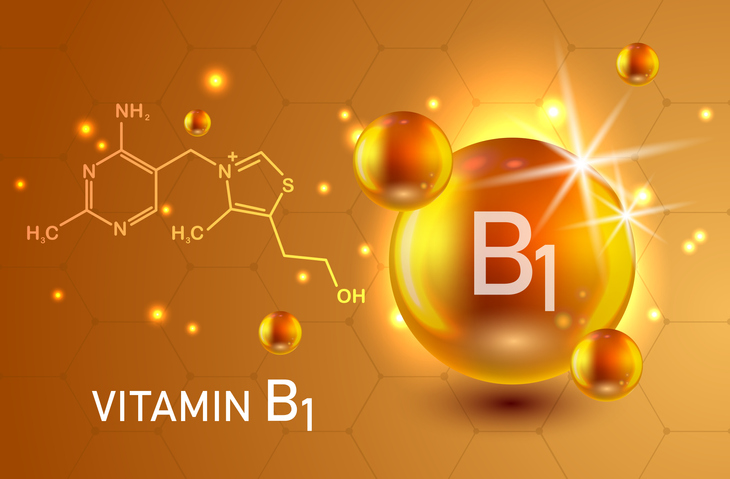
What is Thiamine?
Also known as vitamin B1, thiamine is a water-soluble vitamin that can be found naturally in many foods, including fish, pork, enriched cereal, yogurt, beans, and whole grains. It also comes in supplement form, which can help ensure you are getting adequate amounts of thiamine every day. Thiamine is also added to various food products, and readily available as a dietary supplement. Thiamine is required for mitochondrial energetics, which is the production of adenosine triphosphate (ATP) which is synthesized in mitochondria and is the primary source for biological functions. ATP acts like the energizer bunnies inside of our cells that ignites important biological functions, nerve impulse conduction, muscle contraction and protein synthesis.
Thiamine’s Physiologic Functions
Thiamine has two main functions: alpha-keto acid decarboxylation (carbohydrate metabolism) and transketolation (pentose phosphate pathway activity) and is also a marker of decreased levels of thiamine. The active form of thiamine is Thiamin Pyrophosphate (TPP). We will go into more in depth description of thiamine in future blogs. For now, we will review the basics of how thiamine helps support the nervous system.
How Thiamine Impacts Memory
Thiamine’s primary role is to help your body convert food into energy that is used throughout the body, including in the brain. Having enough thiamine can help improve your memory and concentration levels, making it easier to focus and getting rid of brain fog. According to research, preclinical models have demonstrated that reduced thiamine levels in the body can drive Alzheimer’s Disease like abnormalities, including memory deficits, neuritic plaques, and hyperphosphorylation of tau. This is critical information to know and treat those who may be suffering from Alzheimer’s Disease. This is worth remembering isn’t it!
What is the Main Cause of Thiamine Deficiency?
It is possible to become thiamine deficient and develop a memory condition called Korsakoff syndrome. This happens when the body is severely deficient in thiamine and is most commonly found in people who suffer from long-term alcohol abuse, excessive fasting, anorexia, or have had weight loss surgery.
While the exact mechanisms are still unknown, researchers have found that a severe thiamine deficiency can disrupt essential biochemicals that carry signals to and from brain cells to store and retrieve information and memories. These biochemical disruptions lead to microscopic brain bleeding, eventually forming scar tissue.
Researchers have found that giving people with dementia high doses of thiamine can help the brain increase its energy use, which can help slow memory decline. Additionally, thiamine may help people with chronic fatigue syndrome clear their brain fog and have more mental energy.
We hope this information can help you or someone you love and care about.
Please go to the catalog within Quality Vitamin Store to look at the various brands of Thiamine offered on FullScript.
Health Disclaimer:
The information provided in this blog is intended solely for informational and educational purposes. It should not be considered medical advice, diagnosis, or treatment. Please review all supplements you are taking or are considering taking with your health care professional.
Thank you for reading! Your path to enhanced cellular wellness starts here.